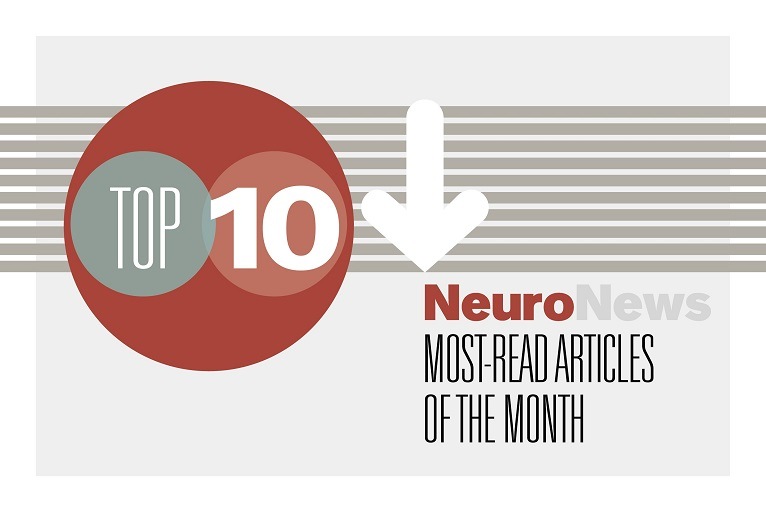 An exclusive interview covering a novel endovascular treatment option for communicating hydrocephalus (CH), the latest research involving deep brain stimulation (DBS) therapies, and data demonstrating the role mobile intervention teams could play in stroke care, all featured among the most popular stories on NeuroNews in August.
An exclusive interview covering a novel endovascular treatment option for communicating hydrocephalus (CH), the latest research involving deep brain stimulation (DBS) therapies, and data demonstrating the role mobile intervention teams could play in stroke care, all featured among the most popular stories on NeuroNews in August.
1. eShunt system offers promise for endovascular treatment of hydrocephalus
“I have tried several devices in the last 10 or 20 years, but I think this is absolutely different—this is the first time that we have treated non-vascular problems [using an] endovascular solution,” Pedro Lylyk (Clinica Sagrada Familia, Buenos Aires, Argentina) told attendees at the Society of NeuroInterventional Surgery’s 18th annual meeting (SNIS; 26–29 July 2021, Colorado Springs, USA and virtual), documenting first-in-human experience with the eShunt system (CereVasc)—an investigational device for the treatment of CH.
2. Revolution in neurotherapy? Spotlight on focused ultrasound at 2021 EAN congress
The applications of focused ultrasound in the field of interventional neurology, and the possibility of a “revolution in neurotherapy”, were explored at the 7th Congress of the European Academy of Neurology (EAN; 19–22 June 2021, virtual) in a session where transcranial, ultrasound-based surgery for tremors, blood brain barrier opening, and focal neuromodulation with ultrasound, all featured.
3. Long-term effectiveness of STN-DBS for Parkinson’s confirmed with 15-year follow-up study
New findings published in Neurology, the medical journal of the American Academy of Neurology (AAN), have confirmed the long-term effectiveness of deep brain stimulation of the subthalamic nucleus (STN-DBS) in treating Parkinson’s disease—with a “significant improvement” in motor complications and a stable reduction of dopaminergic drugs being observed more than 15 years after surgery.
4. FRED flow diverter safe and effective in treatment of “appropriately selected” intracranial aneurysms
The Flow Redirection Endoluminal Device stent system (FRED; MicroVention)—a flow diverter used to treat intracranial aneurysms—has been deemed safe and effective for this indication, following a multicentre pivotal trial designed to support an application for US Food and Drug Administration (FDA) approval. The results of this study are published in the Journal of NeuroInterventional Surgery (JNIS).
5. Phenox highlights benefits of longer stentriever devices with new study results
Following its acceptance into Frontiers in Neurology, Phenox announced the results of a paper exploring the benefit of choosing a longer stentriever for mechanical thrombectomy procedures.
6. Travelling stroke team enables faster treatment and better patient outcomes
In a pilot programme in New York City, USA, a mobile interventional stroke team (MIST) travelled directly to patients to perform emergency stroke surgery instead of transferring stroke patients to a specialised stroke centre. This resulted in significantly less disability for patients three months after their stroke when compared to patients who lost valuable time in being transferred to a higher level stroke centre.
7. Flow Neuroscience receives Series A funding to advance tDCS depression treatment
Flow Neuroscience, the creator of what is currently Europe’s only medically approved transcranial direct current stimulation (tDCS) device and behavioural therapy app for depression, closed a US$9.3 million, oversubscribed Series A funding round led by Khosla Ventures, CSS group through Swiss Health Ventures, and Zühlke Ventures.
8. Neurosurgery with Surgical Theater’s VR and AR technologies set for first use in Israel
Rambam Healthcare Medical Center in Haifa, Israel is set to become the first medical centre in Israel to use virtual reality (VR) and augmented reality (AR) to plan and perform neurosurgeries—using technology provided by Surgical Theater.
9. Benefits of EVT for basilar artery occlusion “cannot be excluded” following another inconclusive study
A randomised controlled trial (RCT) involving 300 patients found that functional outcomes among basilar artery occlusion stroke patients “did not differ significantly” with endovascular therapy (EVT) compared to standard medical care. Nevertheless, writing in the New England Journal of Medicine (NEJM), the study’s authors state that “the results of this trial may not exclude a substantial benefit of EVT”—with larger trials now being needed to determine the efficacy and safety of EVT for basilar artery occlusion.
10. Allegheny Health Network initiates clinical trial exploring use of DBS to treat obesity
A team of physicians at Allegheny Health Network (AHN) in Pittsburgh, USA has received US FDA approval to begin the second phase of a “groundbreaking” clinical trial exploring the efficacy of DBS in the management of morbid obesity.







